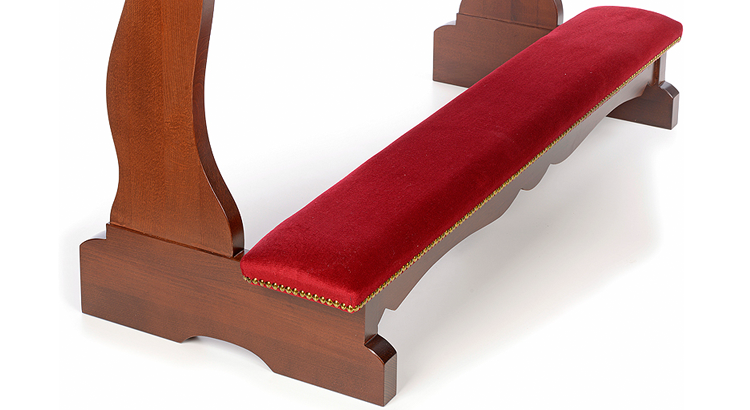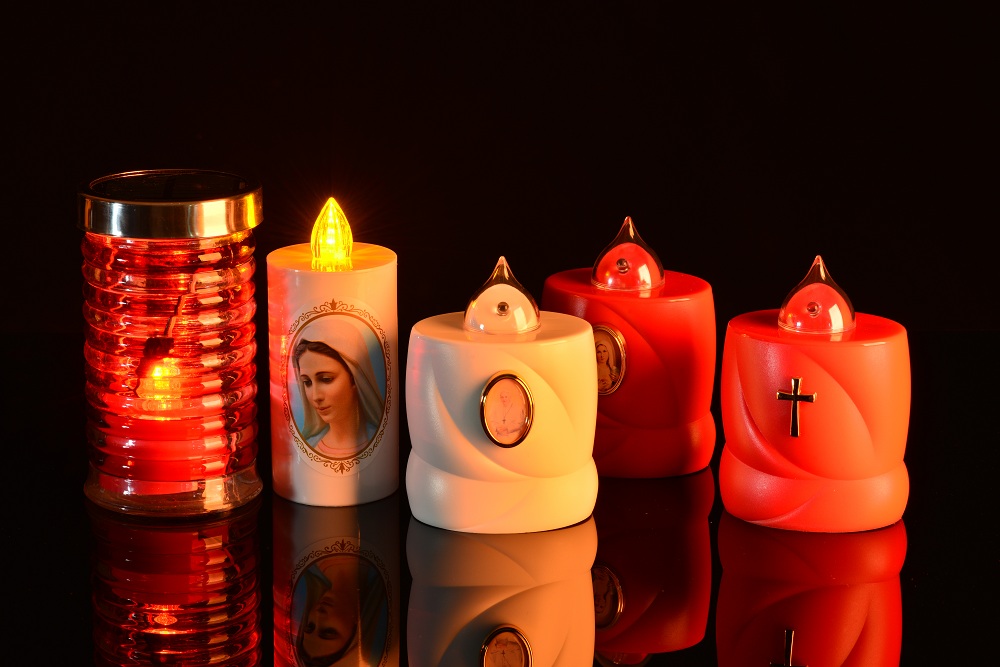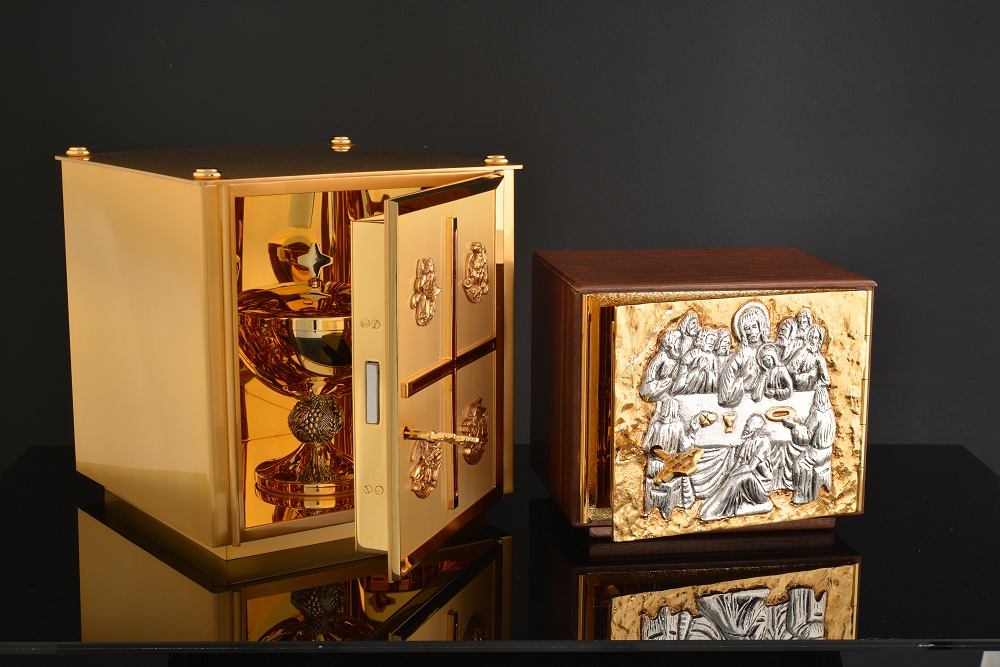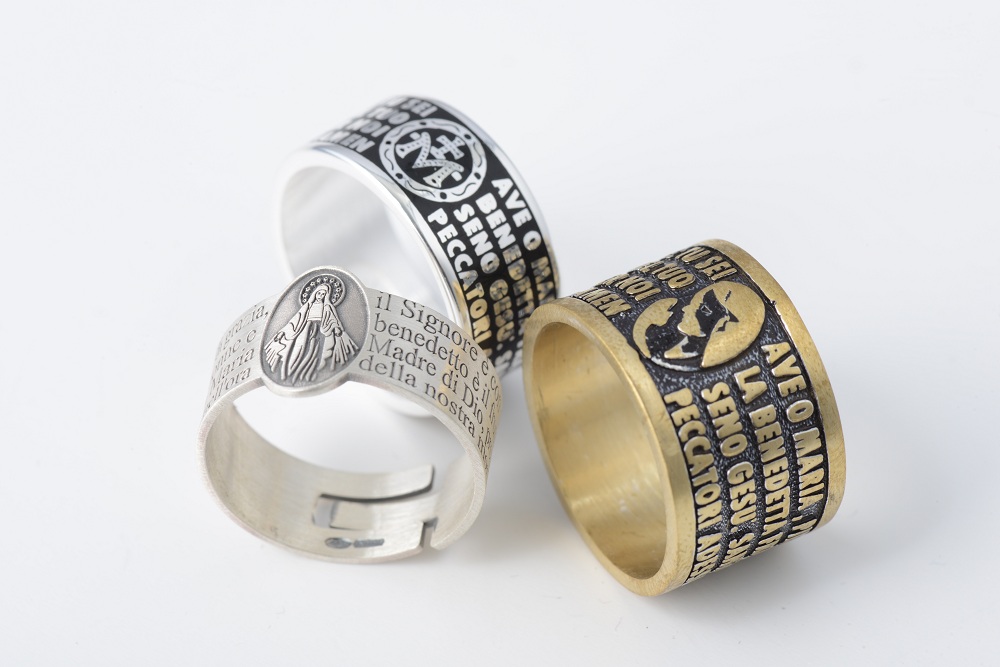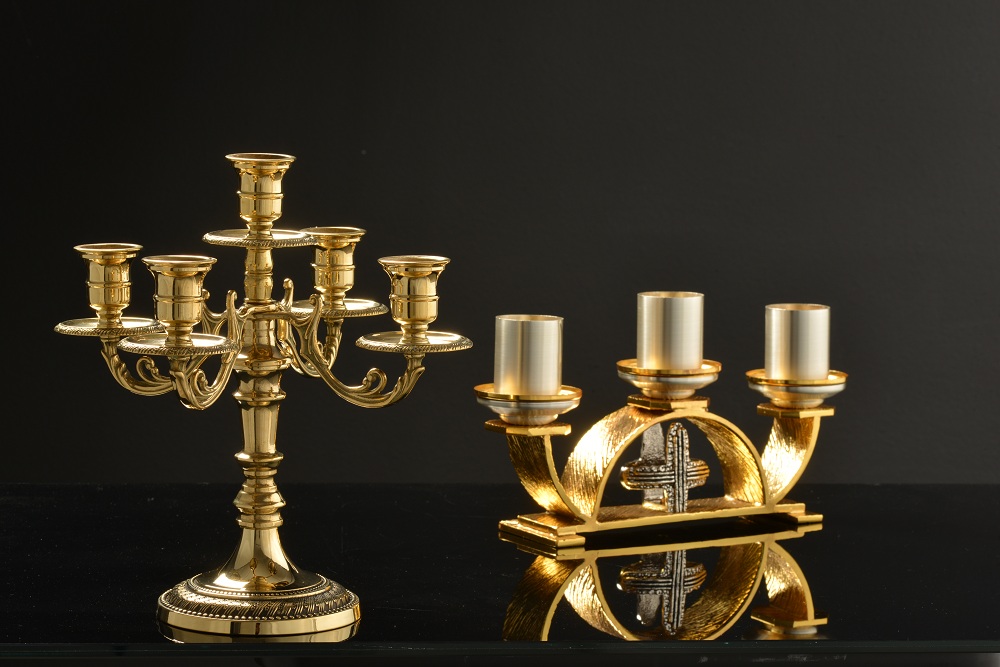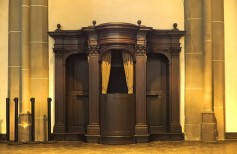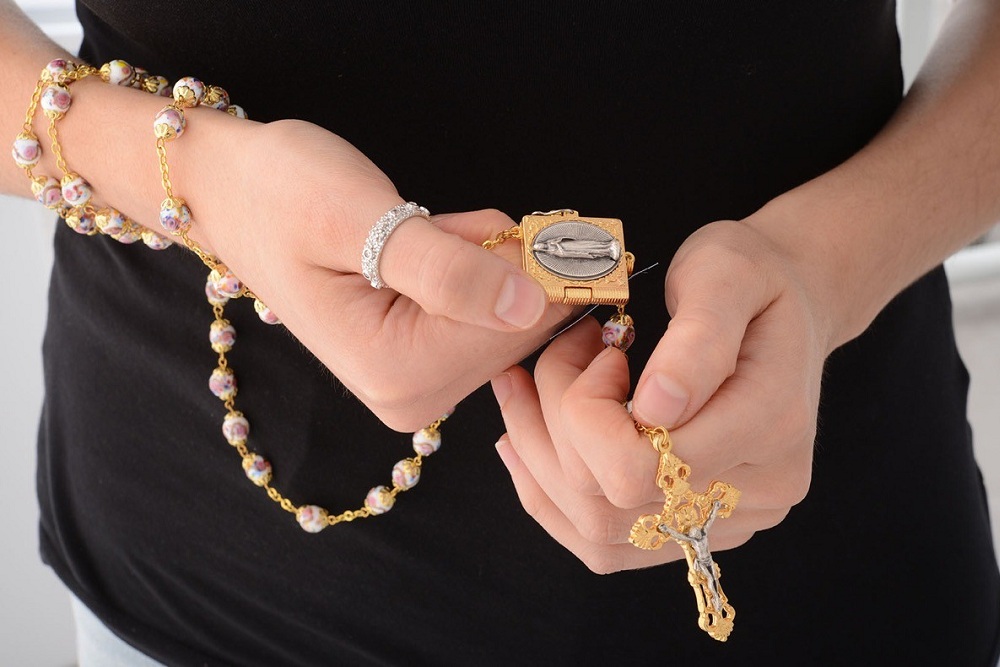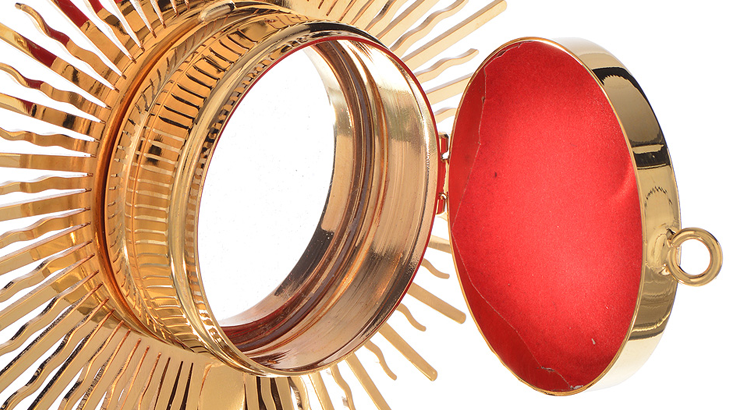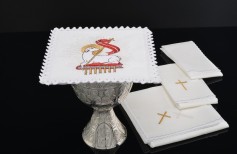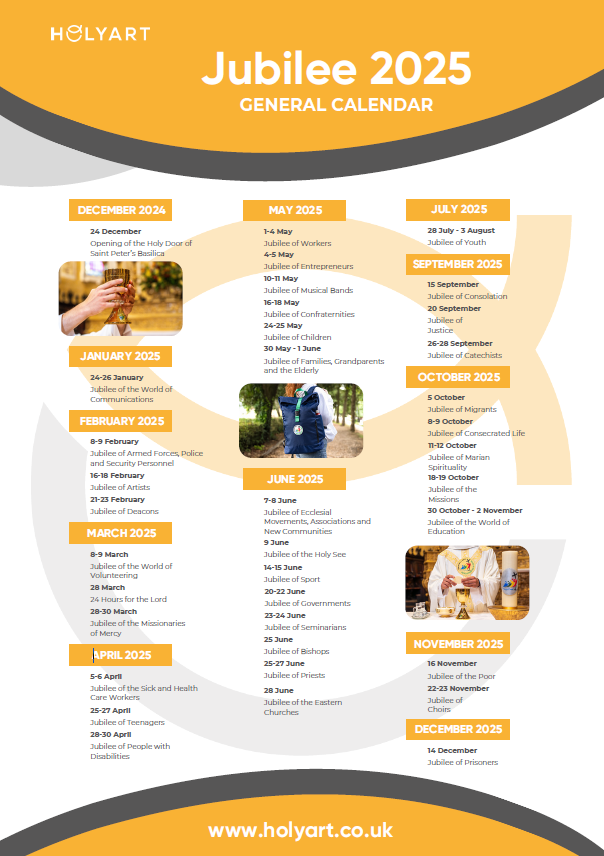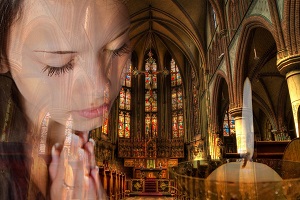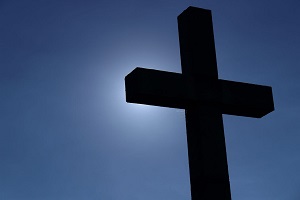The prayer kneeler belongs to typical furnishings of churches and chapels since the fifteenth century. It is a piece of furniture, usually made of wood, used to kneel and pray.
The kneeler can be placed before the tabernacle, an altar, a statue of a saint or a Madonna. Typically, it consists of a supporting surface for the knees, usually padded or covered with a cushion, and a riser on which to lay hands in the act of prayer.
During different historical periods, the prayer kneeler was the subject of many artistic changes, enriching itself with refined details, inlays, exquisite friezes depicting angels, floral motifs and sacred symbols. The prayer kneeler, especially in the Baroque period, could be embellished with gold tooling, inserts made of ivory, bronze and other precious materials. However, it has maintained over the centuries a simple and constant line, albeit with some variation. For example, some kneelers can be equipped with drawers and cabinet doors, or of a lectern, below which is housed a closed compartment.
Among the various types of prayer kneelers we remember:
– The sacristy kneeler, where the priest kneels to pray before going to church to celebrate mass. It can be fitted with a shrug decorated with a sacred image. It can accommodate a table with the preparation and thanksgiving prayers.
– The communion kneeler on which the faithful kneels to receive communion.
– The name kneeler, usually belonging to a single or a family, marked by a plate or by a sign of belonging.
– The kneeler-stool, simple, low, without lift.
– The kneeler-chair, a chair with integrated kneeler, equipped with lift and flat surface. It can also have a folding seat under which is hidden the real kneeler.

